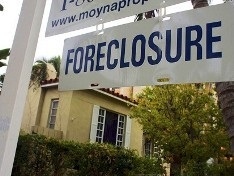
By Marylyn B. Schwartz
RISMEDIA, March 31, 2008-If you were Rick Sharga, VP of Marketing, RealtyTrac, Inc. you would find yourself smack in the middle of the foreclosure toxic soup. You’d be working to help sort out the truth from the hyperbole, the factual data from the “sell-papers” exaggerations and working diligently to find the most effective ways to assist real estate sales professionals and consumers navigate the market. Here, Sharga gives us an insightful view from the inside. 
Marylyn B. Schwartz: As one of the most visited Internet sites dedicated to foreclosure data, how has your focus evolved over the past two years?
Rick Sharga: As we are all aware, we are embroiled in the most challenging real estate market in decades; perhaps since the Great Depression. Foreclosures and mortgage delinquencies are at an all-time high. This down cycle differs from others in that there was no one specific base cause for the crisis. We did not experience an S&L meltdown, nor soaring interest rates or high unemployment rates. What we did find was variable toxic loans and lending practices. Our company has had to respond to the issues by staying current on the trends, data and education needed for all interested parties. In so doing, we see ourselves as being part of the solution rather than the growing problem.
MBS: You say, ‘growing problem.’ Am I to infer from that your sense that we have not hit bottom?
 RS: That is correct. We have not hit the peak of foreclosures to date. 53% of homes that end up in foreclosure are homes mortgaged by sub-prime loans. That’s twice the normal rate. With vast numbers of sub-prime adjustable rate loans up for rate adjustments this spring, we have a long way to go before we see the bottom. Bank-owned properties (REOs) typically represent about 20% of sales inventory. Currently that number is 40%. Relative to the number of short-sales (sales of properties where the outstanding mortgage balance is greater than the sales price accepted by the bank in satisfaction of the loan,) accurate data is difficult to acquire. A detailed study of the balances due on all mortgages versus the actual sales prices would be needed to determine accurate figures. We are working on that data.
RS: That is correct. We have not hit the peak of foreclosures to date. 53% of homes that end up in foreclosure are homes mortgaged by sub-prime loans. That’s twice the normal rate. With vast numbers of sub-prime adjustable rate loans up for rate adjustments this spring, we have a long way to go before we see the bottom. Bank-owned properties (REOs) typically represent about 20% of sales inventory. Currently that number is 40%. Relative to the number of short-sales (sales of properties where the outstanding mortgage balance is greater than the sales price accepted by the bank in satisfaction of the loan,) accurate data is difficult to acquire. A detailed study of the balances due on all mortgages versus the actual sales prices would be needed to determine accurate figures. We are working on that data.
MBS: There is much being said in the press about the banks’ willingness or unwillingness to negotiate short sales to avoid ultimate foreclosures. What is your take on that topic?
RS: Banks are overwhelmed by the volume of delinquencies, foreclosures and proffered short-sales. A large bank that we work closely with provides some anecdotal evidence as to the gravity of the problem. In 2006 they had 2,000 foreclosures. In 2007 they had 21,000. According to the Mortgage Banker’s Association, loans are going delinquent faster than they are going to foreclosure. The banks are just not equipped to handle this volume of problems. We are seeing three to eight weeks for even getting a response for consideration of a short sale, and longer to process it if approved. Part of the challenge is that there is little faith in the valuations being done by the appraisers.
MBS: I am aware of that challenge, and it is not the fault of the appraiser in most cases. Yes, two to three years ago there was a great deal of pressure placed on appraisers to ‘pad’ his/her valuations in order to justify the mortgage amounts desired by the sub-prime applicant. However, right now we seem to see that the market volatility creates its own set of problems relative to accurately predicting pricing trends.
RS: Yes, there was quite a bit of ‘ARM-twisting’ going around. High valuations were aided by lots of ‘free’ money. Wall Street was ready, willing and able to reap the rewards of the real estate boom. Historians will find the fingerprints of those big wigs (of that aforementioned address) upon the victims. That is not to say that there was not a sufficient amount of greed on the part of buyers. Everyone was ready for the big-money kill. And, the fact that the lenders loosened their qualification criteria and lending-practices oversight just made the road to riches seem all the more attainable. We help the appraisers and banks through our site’s mapping tool. They can search to see how much foreclosure activity there is around a particular property. As we all know, when there is a lot of foreclosure activity, values are adversely affected. When you couple this information with MLS comps, evaluations are bound to be more accurate.
MBS: Who are the most frequent visitors/subscribers to the site?
RS: Investors and first-time buyers by far. It used to be people who owned a first home and wanted to purchase a second. Due to market conditions, there are far fewer subscribers in that arena. Now, subscribers need guidance and assistance in making wise purchase decisions, and the flipper craze is all but gone. Investors know that if they do not buy wisely, they may be facing future foreclosures themselves. The most frequent question we get from our subscribers is, ‘We found three properties we like. Now what do we do?’ We soon realized that those subscribers needed to be referred to a real estate professional who understood foreclosures. We have referred 6-7,000 buyer leads to real estate sales professionals. However, the truth is that many agents still think an REO is something you dunk into your milk after dinner.
MBS: That’s good! So, what do you do about that? How are you educating the ‘cookie dunkers’?
RS: Our site is set up to be an educational resource. There are many FAQ’s, state laws for each state (they differ greatly from state to state,) there is a foreclosure library of resource material and we do two monthly webinars: ‘Foreclosures 101′ to promote greater understanding.
MBS: Are there any other resources you would recommend?
RS: “REOMAC.com and FiveStarInstitute.com offer classes, certifications and other educational opportunities to those who wish to enhance their skills and develop greater opportunities in the foreclosure arena. In addition, USFN.org (Mortgage Banking Attorneys) is a terrific resource for attorneys who are expert in helping sellers to negotiate short-sales and foreclosures. DSNews.com provides default news and articles of interest.
We believe that even if an agent is experienced in the foreclosure arena, they need to encourage their sellers to seek legal assistance to work in tandem with the real estate expertise. There is much opportunity for liability when an agent is placed in the position of advising someone in such a dire circumstance. Misspeaking could be the difference between helping a seller navigate a workable solution and causing them to have ruined credit for many years to come. We are piloting a new subscriber advantage that is showing amazing promise for both sales professionals and consumers. We call it: Hyper-efficient Transaction Opportunity. A consumer must complete a form with personal as well as qualification information and then is able to make an offer on a property from the site. The offer goes directly to the real estate agent or service provider (REO consolidator) who is listing the home on behalf of the bank that owns it.
MBS: Rick, it is clear that there is much to be learned in this quickly changing segment of today’s real estate reality. Your insight, firsthand knowledge and ever-evolving site helps us all to better understand the foreclosure conundrum.
Marylyn B. Schwartz, CSP, is an expert in real estate and corporate sales training/management and team development. She is president of Teamweavers and a trainer for Leader’s Choice.
For more information, visit www.marylynbschwartz.com, or e-mail teamweaver@aol.com.










